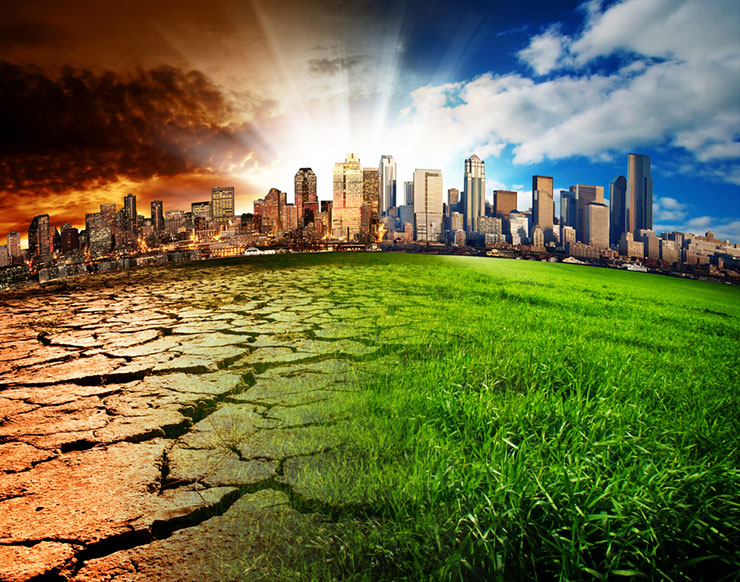
Climate Change: Vital signs of the planet (NASA.gov)
Opinions do not necessarily represent CUIndependent.com or any of its sponsors.
Before I really get into this, let it be clear that I am not an advocate for global warming or any kind of man-induced destruction of the planet. What I am an advocate of, however, is the opportunity to further educate ourselves in terms of how climate change will alter the land we walk on.
Since the industrial revolution, global warming has partially taken the fate of our planet into its own hands, causing drastic changes to ecosystems that are prehistorically meant to be absolute. Although we may look at the word “global warming” or “climate change” in dismay, without it, we would not be nearly as educated or appreciative of this big, blue ball we call home.
A study led by the University of Colorado Boulder, published on Jan. 25 in the journal Nature Communications, discovered a glacial retreat in the Canadian Arctic, exposing landmasses that have been under ice for at least 40,000 years. The region may be experiencing its warmest century in 115,000 years, causing the colossal ice caps to melt and give way to unfamiliar land underneath.
It is rare that the effects of global warming lead us to discover an entirely new, untouched piece of land. Usually, we are focused more on how it has been destroying existing land. Simon Pendleton, a doctoral researcher at CU Boulder’s Institute of Arctic and Alpine Research, is the lead author of the study published in the Nature Communications journal. He discovered that the Arctic’s glacial retreat is due to climate change. After traveling to Baffin Island, the area of research associated with the study, Pendleton detected that the Arctic is warming up three times faster than the rest of the planet, causing abrupt melting of ice glaciers and land masses becoming exposed for the first time in centuries.
The threat of global warming is not one to be reckoned with. Melting ice glaciers ultimately means rising sea levels, which could render coastal cities or countries underwater in a few years. What you may be thinking to yourself is, “why should we be worried about cities becoming submerged underwater from global warming when we’ve just discovered a new piece of land to replace that city … also from global warming?”
There is some truth to the fact that global warming, and climate change as a whole, help us to discover new things about our planet every single day. And yes, the land that is now exposed in Baffin Island could mean that we have discovered a new area that people can settle on. The island itself is the fifth largest in the entire world, after all. I’m sure a piece of land that size would fit all of the people who have to flee their city because it is slowly sinking under the ocean.
The question here is not whether or not the newly exposed land found on Baffin Island could save us all from a horrendous death by an engulfing sea, but whether or not we should have ever discovered it in the first place. The land’s surface has been encased by ice for at least 40,000 years, meaning that any fragment of life on this island has adapted and evolved to coexist solely in these conditions.
The disruption of any environmental niche that an organism uses for survival, like temperature, throws an entire ecosystem off balance. A collection of already endangered wildlife currently inhabits Baffin Island including narwhals, polar bears and beluga whales. These particular species thrive off of the cold climate and use the ice glaciers to their advantage, whether it be hunting for food in polar bears or feeding off of algae that attach to the bottom of ice sheets in beluga whales.
The fact of the matter is that there is a reason why this island has been covered in ice caps for over 40,000 years: so that the Arctic, and those who live in it, can thrive. Loss of ice glaciers means that both land and sea will absorb much more of the sun’s heat since snow reflects about 80 percent of the sun’s energy back into space. That means the effects of global warming will only be accelerated. The scientists who administered the CU Boulder-led study predict that Baffin Island could be free of ice in the next few centuries, a very short period of time compared to the 40,000 years during which it was covered in ice.
In many ways, we can thank global warming for our extensive knowledge of the planet. I mean, who knew the species that built this place up, would also be the ones to tear it down?
Jokes aside, global warming and climate change have reinforced the platitude that we really don’t know what we have until it’s gone. There are habitats on this Earth that are still yet to be explored, including the frozen world that has preserved forms of life, both new and old. Baffin Island’s glacial retreat is only just the beginning of man’s exploration into life with global warming. There is no doubt that there are mammoths and mummified organisms encased in ancient glaciers and ice caps that will give light to our species’ past existence. The question, however, is a matter of who will global warming wipe out first: us or the ice.
Contact CU Independent Opinion Staff Writer Savannah Mather at savannah.mather@colorado.edu.
